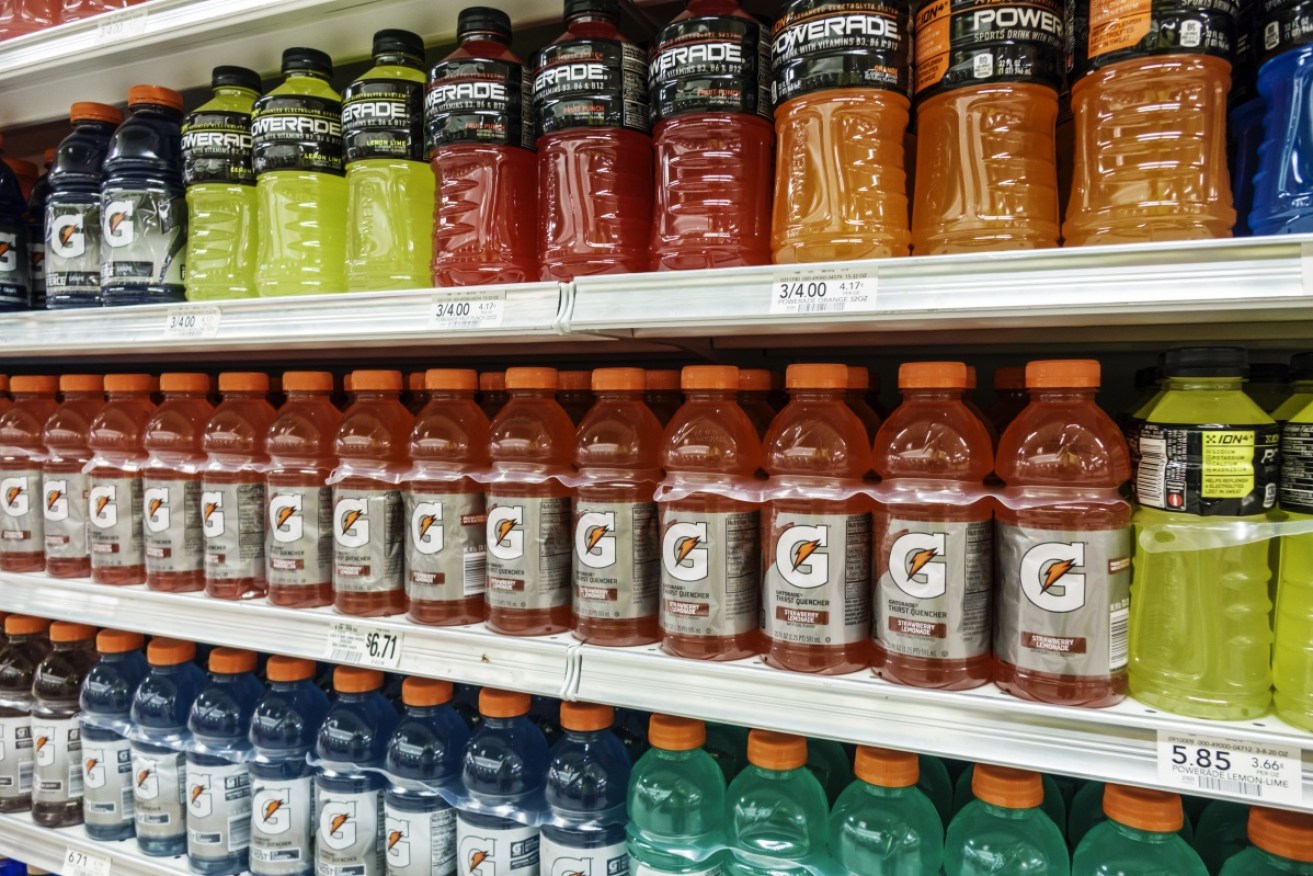What you need to know before you reach for that sports drink


Sports drinks can be beneficial in endurance training. Photo: Getty
Anyone who gets into fitness seriously, or starts exercising for longer, might find themselves wondering if they need a sports drink to hydrate and replace lost nutrients.
These colourful drinks, found in supermarkets, convenience stores, and even petrol stations, have long been marketed as performance-enhancing products for endurance athletes.
Common brands include Powerade or Gatorade, and the drinks contain carbohydrates (sugars) to provide energy quickly and fuel muscles for longer.
Sports drinks also help replace lost electrolytes, mainly sodium, quickly.
They’re definitely not for everyone. But experts do acknowledge there is sometimes a role for sports drinks.
“The best sports drink out there is water … it’s adequate for people who are exercising for up to 45 minutes all the way up to 90 minutes,” accredited sports dietitian Tim McMaster said.
However, people who train longer in strenuous situations, or who sweat easily, might need more than plain water to rehydrate and fuel their body.
“If you’re exercising for at least an hour or longer, in hot and humid conditions, where you have a tendency to sweat a lot, that would be the best time to use a sports drink,” he said.

Endurance athletes or those who sweat a lot are among those who might benefit from a sports drinks. Photo: Getty
That’s because the salt in sports drinks can act like a sponge, and can prevent the water you drink from going straight through your kidneys and bladder and being expelled in urine.
Mr McMaster, who works with athletes in the Victorian Football League, said he promotes a “food-first mentality” for recovery, regardless of fitness level.
“If you could drink water and have a meal afterwards, even a snack … then your body is going to get all the nutrients it needs for health and recovery in one go,” he said.
The best meals post-workout include a combination of low GI, and high fibre foods (for example, brown rice, wholemeal pasta or bread, sweet potato) with lean meats and vegetables. Adding healthy fats such as avocado and extra virgin olive oil will help absorb the nutrients, Mr McMaster said.
Melbourne GP and spokesperson for the Royal Australian College of General Practitioners Dr Abhi Verma said non-athletes should limit their sports drink intake because of the high sugar content in some products.
“There is a concern that a significant amount of sugar, especially with existing health conditions, could be unhealthy,” he said.
“If you were exercising 30-60 minutes a day a few times over the course of the week, then sticking to water would be the way to go.”
“There is no significant benefit to using sports drinks for amateur athletes.”
Instead, Dr Verma recommends drinking milk for hydration. Other healthier alternatives include sugar-free cordial, fruit juices and whole fruits such as watermelon.

Home-made milkshakes, smoothies, juices and water are healthier alternatives. Photo: Getty
Anyone exercising for weight loss should avoid sports drinks, as the carbohydrate content can put in more energy than what is burnt.
In addition, some sports drinks can cause stomach upset. Sports Dietitians Australia recommends that athletes take small sips during training to reduce gastrointestinal issues.
In fact, research has found that you can still reap the performance-enhancing benefits of a sports drink by simply swilling the liquid in your mouth and spitting it out.
“Mouth sensing” for five to 10 seconds can trick the brain and central nervous system into pushing your body harder. The Australian Institute of Sport says people who do 45-75 minutes of sustained, high-intensity exercise might benefit from this strategy.
But a downside to this is tooth decay. As with any acidic or sugary drinks, sports drinks can increase your risk of long-term dental problems.
Dental experts advise against swishing these drinks. They also recommend delaying brushing your teeth for at least half an hour after consuming anything acidic (brushing too soon after an acidic food or drink can wear down tooth enamel).
Healthier alternatives to sports drinks:
- Milk or milk-based smoothies. Milk contains all the essential nutrients and electrolytes to rehydrate and recover after exercise;
- Watery fruits such watermelon, oranges or grapes. Eating fruit, or drinking freshly squeezed juice, is great way to hydrate before, in between, or after a training session;
- If you are sick of plain water, you could try adding a squeeze of lemon or reaching for a sugar-free cordial. Consume acidic drinks through a straw to minimise dental problems.








